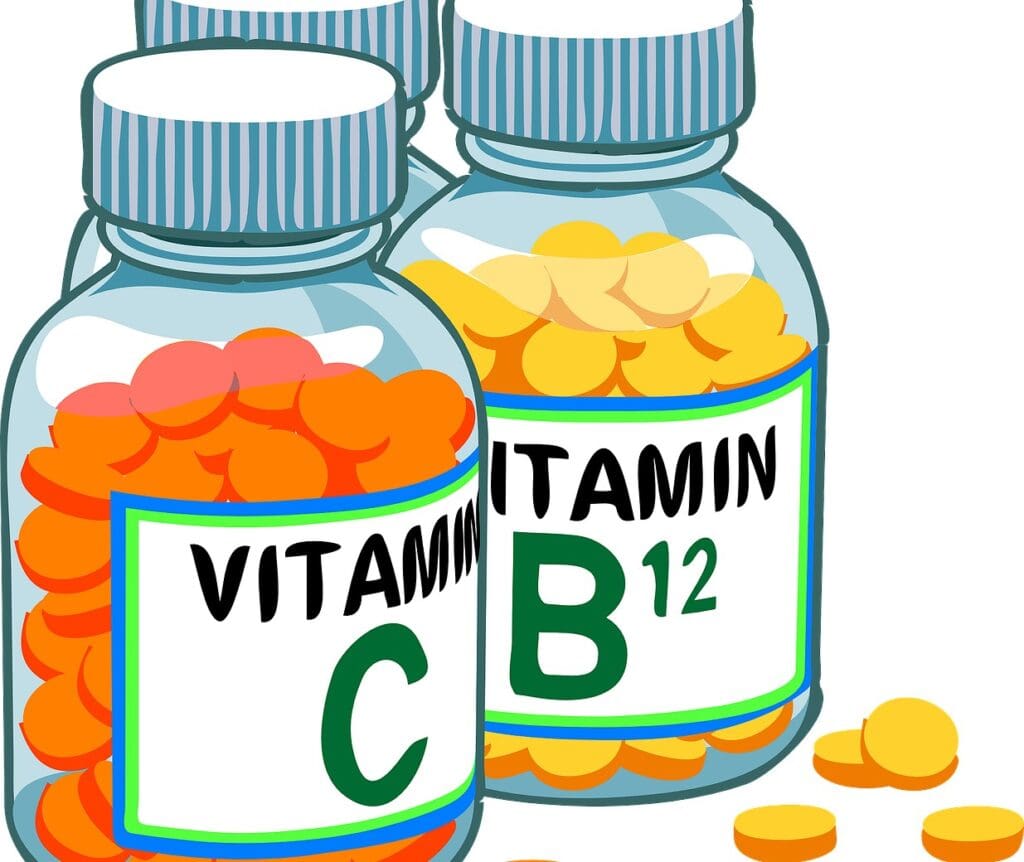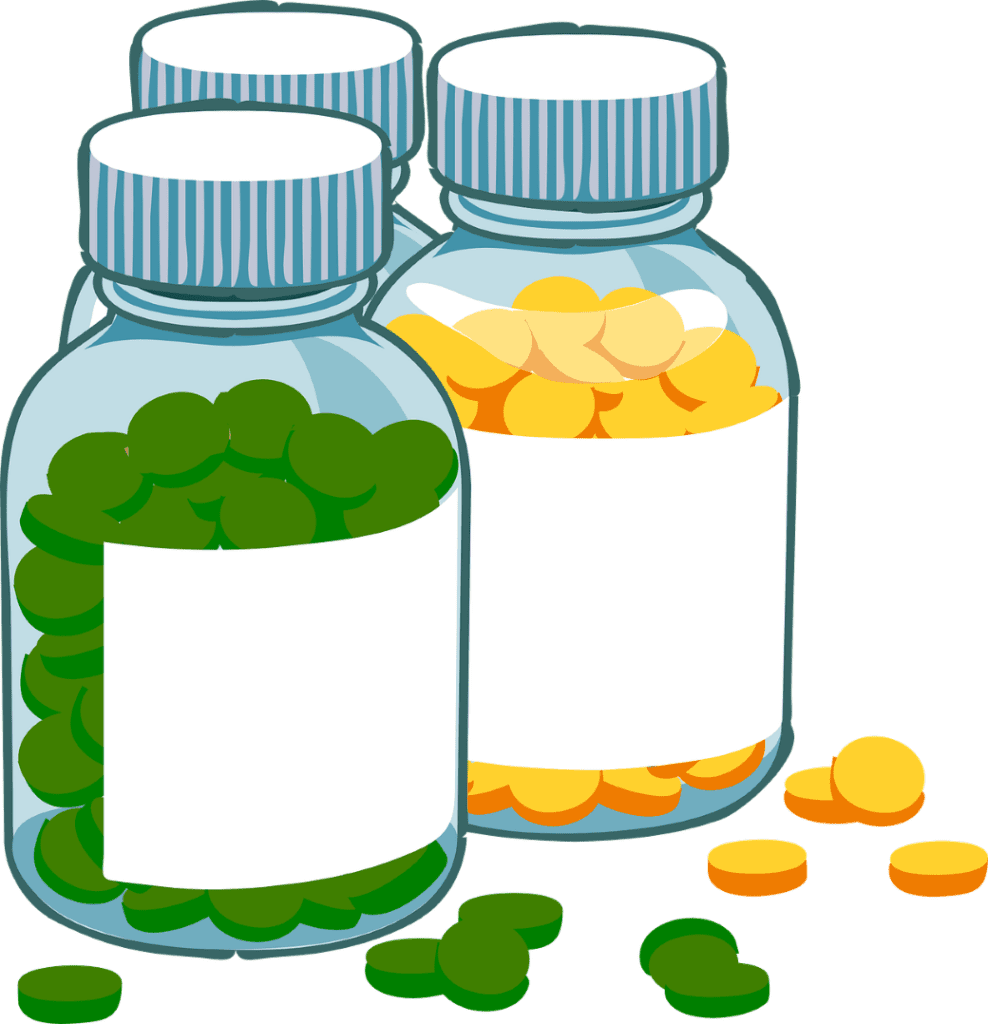While individual needs vary when it comes to vitamins, minerals, herbal, and supplements are generally recommended for different age groups and genders, particularly for older adults. These include Vitamin B12, Calcium, Vitamin D, and Vitamin B6. Additionally, Omega-3 fatty acids, multivitamins, and botanicals are also commonly used. Women, especially, may benefit from iron, calcium, and vitamin D. When considering vitamins, minerals, and supplements, recommended ones often cover these key nutrients to support various health needs.
General Recommended Supplements:
Vitamins, Minerals, Herbal and Other Supplements:
One size-fits-all vitamin, mineral and supplement list doesn’t exist, certain supplements are generally recommended across age groups, with variations based on individual needs and life stages. Dietary supplements, like vitamins, minerals, and herbal extracts, are used to supplement the diet with nutrients that may be lacking or to support specific health needs. It is vital to recognize which supplements are recommended to enhance one’s health effectively.
Vitamins:
Vitamin B6:
It offers a range of benefits, including improved mood, reduced symptoms of premenstrual syndrome (PMS), and potential relief from nausea during pregnancy. B6 plays a crucial role in brain health, nerve function, and immune system support, making it one of the supplements often recommended for those requiring enhanced neurological and emotional well-being.
Vitamin B9:
Known as folic acid, It offers several benefits, particularly for those at risk of folate deficiency. They are crucial for red blood cell formation, cell growth, and DNA production. Folic acid is vital during early pregnancy to prevent neural tube defects like spina bifida. It can also improve memory and thinking skills in some older adults. This makes it a supplement commonly recommended for maternal and cognitive health.
Vitamin B12:
It offers several benefits, including supporting healthy red blood cell production, boosting energy levels, and supporting cognitive function. It also plays a crucial role in maintaining a healthy nervous system and preventing megaloblastic anemia, a blood condition that causes fatigue and weakness. Additionally, it helps improve mood and mental health. Because of these benefits, B12 is a widely recommended supplement for maintaining vigor and mental wellness.
Vitamin C:
A crucial nutrient that acts as an antioxidant, helping to protect cells from damage caused by free radicals. It is essential for forming blood vessels, cartilage, muscle, and collagen in bones. Vitamin C also plays a vital role in wound healing, promoting healthy teeth and gums, and aiding in the absorption of iron. Due to its broad health-supporting effects, Vitamin C is a recommended part of many dietary plans.
Vitamin D:
Supports bone health by aiding in calcium absorption, boosts the immune system, and may play a role in preventing certain types of cancer and heart disease. It helps keep muscles and brain cells working, which makes it among the supplements recommended for robust health maintenance.
Vitamin E:
A powerful antioxidant, helps protect against cell damage and reduce the risk of certain chronic diseases. Its main role is to act as an antioxidant, scavenging loose electrons (free radical) that can damage cells, making Vitamin E frequently recommended for antioxidant support.
Multivitamins:
Offers various benefits, primarily by helping to fill nutritional gaps and supporting overall health. They can boost energy levels, enhance immunity, and potentially reduce the risk of certain conditions like cancer and age-related eye diseases. Additionally, they can play a role in supporting bone health, cognitive function, and even promoting healthy aging. Among generally recommended supplements, multivitamins provide comprehensive support due to their broad nutrient coverage.

Minerals:
Calcium:
It offers several benefits as a mineral, primarily related to bone health and potentially other areas. Recommended supplements like calcium help build and maintain strong bones, and they can be beneficial for preventing bone loss and osteoporosis, particularly in postmenopausal women. Additionally, calcium plays a role in muscle function, nerve transmission, and blood clotting.
Iron:
Iron is a recommended supplement that is primarily used to replenish iron levels in the body when they are low. This is often due to dietary deficiencies or conditions like heavy menstrual bleeding, pregnancy, or blood loss. It is essential for red blood cell production, which carries oxygen throughout the body.
Magnesium:
It offers a wide range of health benefits, including supporting bone health, improving energy, regulating muscle and nerve function, and maintaining a healthy heart rhythm. Recommended supplements such as magnesium also play a role in blood sugar control, blood pressure regulation, and protein synthesis.
Potassium:
Potassium, a vital mineral, plays numerous roles in the body, including regulating fluid balance, supporting muscle function, and maintaining nerve signal transmission. Also it helps regulate blood pressure and heart rhythm, and is crucial for proper kidney function. These benefits make potassium one of the highly recommended supplements for health.
Selenium:
Offers benefits for thyroid function, immune support, and cognitive health. Selenium is an essential trace mineral that plays a role in protecting cells from damage, and it is also involved in the production of thyroid hormones and DNA.
Zinc:
Supports immune function, wound healing, and potentially certain eye diseases like age-related macular degeneration. Zinc also plays a role in supporting healthy cell growth and division, and may help regulate blood sugar and hormonal balance.

Herbal Supplements:
Ashwagandha:
This herbal offers a range of potential benefits, including stress reduction, improved sleep, enhanced athletic performance, and cognitive function. It may also support male fertility, reduce inflammation, and help manage blood sugar levels.
Echinacea:
It’s often taken to boost the immune system, particularly to support the body in fighting off colds and other respiratory infections. Some studies also suggest potential benefits for skin health, anxiety, and inflammation.
Ginkgo Biloba:
It’s believed this herbal offers various benefits, including improved circulation, enhanced cognitive function, and potential benefits for eye health and mental well-being. It’s also touted for its antioxidant properties and potential role in reducing inflammation.
Ginseng:
It is often taken to improve energy, focus, and potentially boost the immune system. This herbal may also offer benefits for brain health, immune function, blood sugar management, and potentially help with inflammation and fatigue.
St. John’s Wort:
An herbal remedy that can affect brain chemistry by influencing levels of neurotransmitters like serotonin, dopamine, and norepinephrine. It may inhibit the reuptake of these neurotransmitters, increasing their availability in the brain, which could contribute to its potential use in treating mild to moderate depression.
Turmeric:
This herbal helps in reducing inflammation, boosting the immune system, improving digestive health, and potentially aiding in the prevention or treatment of certain conditions like arthritis and cancer. Recommended supplements often include turmeric, known for its wide array of health benefits.

Other Recommended Supplements:
Amino Acids:
Amino acids offer various benefits, particularly for individuals involved in physical activity or seeking to improve overall health and well-being. They can aid in muscle growth, recovery, and endurance, and may also support other bodily functions like immune system health and mood regulation. These are considered recommended supplements for anyone looking to boost their health.
Coenzyme Q10 (CoQ10):
Coenzyme Q10 is associated with several potential benefits, including supporting cardiovascular health, improving energy levels, reducing migraine frequency and severity, and possibly improving skin health. It also plays a role in energy production and acts as an antioxidant, protecting cells from damage. Due to these benefits, it is one of the recommended supplements you might consider.
Creatine:
Creatine supplies energy to your muscles and may also promote brain health. Many people take creatine supplements to increase strength, improve performance and help keep their minds sharp.
Curcumin:
Curcumin offers various benefits, including anti-inflammatory effects, improved brain function, and reduced risk of certain diseases. Adding it to your list of recommended supplements could support your health goals.
Fiber:
Fiber offers several potential health benefits, including improved digestive health, cholesterol and blood sugar control, and potential weight management support. It can also help relieve constipation and may contribute to overall gut health.
Melatonin:
Melatonin supplements can promote sleep and are safe for short-term use. They can be used to treat delayed sleep phase and circadian rhythm sleep disorders in the blind and provide some insomnia relief as well as jet lag.
Omega-3 Fatty Acids:
Omega-3 fatty acids offer a range of potential health benefits, including supporting heart health, reducing inflammation, and promoting brain development. They are also associated with improved cognitive function, enhanced mood, and may even reduce the risk of neurodegenerative diseases like Alzheimer’s. Additionally, omega-3s may contribute to better eye health, reduce the risk of certain cancers, and support joint and bone health. Found in fish oil and flaxseed oil, omega-3s may reduce the risk of heart disease, improve brain function, and reduce inflammation. As such, these are often highlighted as recommended supplements.
Protein Powder:
Protein powder offers various benefits, including aiding muscle growth, weight management, and boosting metabolism. They can also help improve recovery after exercise, maintain muscle mass, and even help with wound healing. Additionally, protein powder can contribute to overall health, boost the immune system, and provide a convenient source of protein. It is a popular choice among recommended supplements for athletes.

Gender Recommendations:
Five Recommended Supplements for Women:
Iron:
Important for women of childbearing age to prevent anemia and support red blood cell production. Consider iron as one of the recommended supplements for this purpose.
Calcium and Vitamin D:
Crucial for bone health, especially during and after menopause, when bone density loss accelerates. Among the recommended supplements, these two are essential.
B9 Folic Acid:
Essential for all women of childbearing age to prevent neural tube defects in developing fetuses. This is one of the key recommended supplements in this category.
Magnesium:
Supports muscle and nerve function, and may help with premenstrual syndrome (PMS) symptoms.
Five Recommendations for Men:
Calcium and Vitamin D:
Crucial for bone health, immune function, and potentially hormone regulation. Many men have low levels due to limited sun exposure.
Magnesium:
Involved in numerous bodily functions, including muscle and nerve function, protein synthesis, and blood pressure regulation.
B Vitamins:
Essential for energy production, red blood cell formation, and nervous system function, particularly B6 for testosterone synthesis.
Omega-3 Fatty Acids:
Important for heart health, brain function, and reducing inflammation. Omega-3 Fish Oils are often among the recommended supplements for these health benefits.
Selenium:
An antioxidant that protects cells from damage.
General Age Recommendations:
20s-30s:
B9 folic acid, iron, and vitamin B12 are important, especially for those who are pregnant or nursing, or have a vegan/vegetarian diet.
40s-50s:
Focus on vitamin D, calcium, and omega-3s, as well as potential for supplements like curcumin for inflammation. These are crucial amongst the recommended supplements for this age group.
60+:
Prioritize vitamin B12, vitamin D, and calcium due to potential absorption issues and increased need for bone support.
Important Considerations Supplement Recommendations:
Consult With a Healthcare Provider:
Before starting any new supplement, it may be smart to talk to a doctor or registered dietitian to ensure it’s safe and appropriate for your individual needs and health conditions.
Supplement Quality:
Choose reputable brands and products that have been tested for purity and potency.
Not a Substitute for a Healthy Diet:
Supplements are intended to supplement a healthy diet, not replace it.

